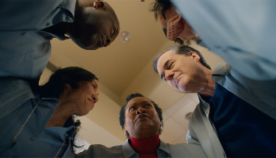About Us
Age Discrimination
The viability of disparate impact as a method for proving discrimination prohibited by the Age Discrimination in Employment Act of 1967 (ADEA) continues to generate controversy in federal appellate courts. In last year’s preview we noted that the Supreme Court has twice denied certiorari on the important question whether jobseekers can assert a disparate impact claim challenging alleged age discrimination in hiring under the ADEA, 29 U.S.C. § 623(a)(2) — Kleber v. CareFusion Corp., 888 F.3d 868 (7th Cir. 2018) (AARP Foundation attorneys represented Mr. Kleber), vacated and contrary result entered on reh’g en banc, 914 F.3d 480 (7th Cir. 2019), cert. denied, 140 S. Ct. 306 (2019), and Villarreal v. R.J. Reynolds Tobacco Co., 806 F.3d 1288 (11th Cir. 2015), vacated and contrary result entered on reh’g en banc, 839 F.3d 958 (11th Cir. 2016), cert. denied, 137 S. Ct. 2292 (2017). We also noted that in both Kleber and Villarreal, en banc U.S. Courts of Appeals vacated panel decisions recognizing a disparate impact age claim by an outside applicant, and that it was likely the Court would take up this issue absent Congressional action.
On July 15, 2021, the House Education and Labor Committee passed the Protecting Older Job Applicants Act (“POJA”), which, if enacted, would amend Section 4(a)(2) of the ADEA to ensure that older job applicants could bring mixed motive disparate impact claims to challenge unreasonable hiring practices that harm them.
Since last year, Congress has not enacted POJA and no other U.S. appeals court has considered the issues posed by Kleber and Villarreal. However, the Fourth Circuit has joined the Seventh and Eleventh in tangling with disparate impact issues under the ADEA. A panel of the Court of Appeals ruled 2-1 that Section 15a(a) of the ADEA, 29 U.S.C. § 633a(a), which covers Federal employees, does not permit a claim founded on a disparate impact theory of liability, notwithstanding the very broad language of the ADEA’s Federal-sector provision. Then, in effect following the example of appellate review of Section 623(a)(2), the full Fourth Circuit granted a petition for en banc review and vacated the panel’s ruling. DiCocco v. Garland, 18 F.4th 406 (4th Cir. 2021), rehearing en banc granted by, No 20-1342, 2022 WL 832505 (Mar. 21, 2022). AARP and AARP Foundation filed an amicus brief supporting Jane DiCocco’s petition for rehearing. Then, in early August 2022, the Department of Justice, the defendant in the case, lodged a letter with the Fourth Circuit changing its position and declaring its view, consistent with longstanding litigation positions taken by the U.S. Equal Employment Opportunity Commission, that federal-sector ADEA plaintiffs may challenge hiring discrimination through a theory of disparate impact. The Fourth Circuit recently vacated and remanded the case to the district court to reconsider Ms. DiCocco’s claims.



















